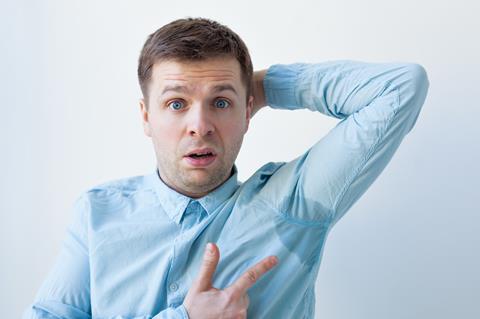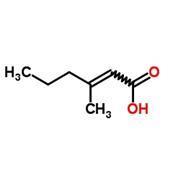That’s chemistry: What is sweat, and why does it smell?

Is sweat just water?
No. Sweat contains many other molecules besides water. Ninety-nine per cent of our body is covered in sweat (eccrine) glands. These glands produce a dilute solution of sodium chloride, potassium chloride and urea, together with small amounts of metabolic waste products such as lactic acid. This sweat is essentially odourless.
So what causes the smell?
Aprocrine glands, sweat glands which are found only in the armpit and groin, produce small amounts of fatty secretions comprising compounds such as cholestrol and steroids. Bacteria on the skin surface and on nearby hair follicles break down these compounds, producing carboxylic acids which are responsible for the smell associated with body odour (BO).

One of the most pungent of organic acids produced is (E)-3-methyl-2-hexenoic acid, the scent of which we recognise as BO. This compound is particularly prominent in males, proving that boys are smellier than girls.
So what can you do about the smell?
Washing regularly with soap and water is a start. Then there are deodorants and antiperspirants, which share many ingredients but work differently.
Deodorants act only to reduce BO by killing the odour-causing bacteria. They are usually alcohol-based, giving them antibacterial properties, but they also contain antibiotics, such as neomycin. Added fragrances help to cover any smells that might develop.
Antiperspirants have a dual action. Like deodorants they contain antibiotics to kill the bacteria and control BO. They also contain aluminium chlorohydrates, Al2(OH)5Cl and Al2(OH)4Cl2, which as well as having antibacterial properties, block and close the eccrine glands to reduce sweating.
This article was originally published in InfoChem






No comments yet